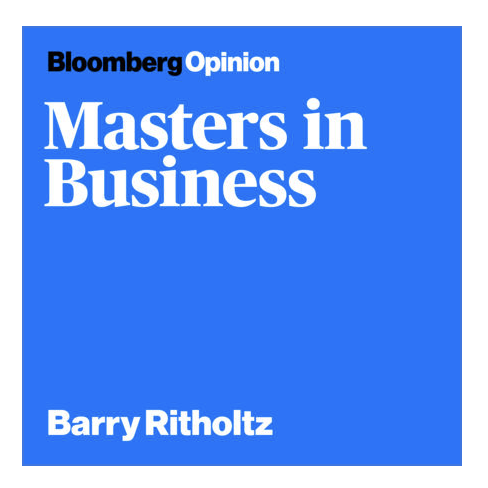In “Land Speculators Made U.S.,” Overcoming Bias, November 5, 2022, blogger and George Mason University economist Robin Hanson writes:
While a U.S. citizen for 63 years, I’d never before heard this story of U.S. origins, told well by Christopher Blattman is his new book Why We Fight (pp. 38-41). Seems the U.S. revolution was a textbook example of war due to elite interests diverging from those of most citizens.
He then goes on to quote Blattman at length.
Blattman is an economist, not a specialist in early American history. So I sent the link to Jeff Hummel who is an historian who has written extensively on early American history. I suspected, given what Jeff has written on the American Revolution, that he might have somewhat different views on how to think of George Washington. Indeed, Jeff’s long article that I had him write for Econlib lays out, among other things, the problem with the Blattman/Bryan Caplan view that the colonies could have achieved a freer society with having a bloody revolution.
Here’s Jeff’s response to me.
I’ve read Hanson’s post, which actually is a long quotation from Christopher Blattman’s Why We Fight: The Roots of War and the Paths to Peace. The book comes highly recommended by Tyler Cowen, and it may in some respects be an excellent book. But based on the Amazon description, the French and Indian War is only one concise example among many in the book, which range from Columbia to Liberia. Blattman therefore hardly qualifies as an expert on the French and Indian War or the American Revolution. About half of the quotation’s claims are correct, but they are overlaid with some gross simplifications and exaggerations. And the title that Robin gives the post, “Land Speculators Made the U.S.,” is especially exaggerated.
Yes, western land speculation did play a noticeable role in both the French and Indian War and the American Revolution, but it was hardly the primary factor in the latter. And even in the case of the French and Indian War, expansion into western lands was being pushed as much by private British settlers and by the British government as by speculators organized in companies like the Ohio Company of Virginia.
Indeed, Washington’s expedition that provoked the French and Indian War had more support from the British cabinet than from Virginia’s legislature, the House of Burgesses. The most definitive, fairly recent account of that war is Fred Anderson Crucible of War: The Seven Years’ War and the Fate of Empire in British North America, 1754-1766 (2001). Unfortunately, my copy is buried somewhere inaccessible, but I do have access as a reference to Anderson’s later The War that Made America, A Short History of the French and Indian War (2005).
British and French dispute over territory in North America was hardly new. Before the French and Indian War broke out in 1754, the French and British had already fought in the colonies’ three other wars: King William’s War (known in Europe as the War of the League Augsburg), 1688-1697; Queen Anne’s War (War of the Spanish Succession), 1701-1713; and King George’s War (War of the Austrian Succession), 1740-1748. The last of these ended only six years before the outbreak of the French and Indian War.
Prior to the outbreak of the French and Indian War, the Forks of the Ohio was not firmly controlled by either power. One can even plausibly argue that the war was in part provoked by Canada’s new aggressive governor, Marquis Duquesne, who, despite the opposition of the Canadian settlers living in New France, initiated occupation of the region with new forts and drove the British Indian traders out. Before Washington undertook his military expedition, he earlier travelled to the region in late 1753, confirming the increased French military presence and unsuccessfully ordering the local French commander to leave.
During Washington’s subsequent military foray into the region, who fired the first shot is still uncertain. The French claimed that Washington’s troops fired first, and used this claim as propaganda, whereas Washington claimed that the French fired first, something confirmed by other admittedly British observers. It is true that Washington’s overall report of the incident was misleading. But to state, as Blattman did, that Washington “lost control of his warriors” is to deny any thought-out, self-interested agency to the Indians themselves. Various tribes were disputing control over the area in a complex milieu of alliances, among each other or with either the British or French. The leader of Washington’s Indian contingent, Tanaghrisson, who started the massacre, was a representative of the imperialistic Iroquois Confederacy, which had also long claimed the area and demanded sovereignty over the local tribes. Although the Iroquois had previously been allied with the French, they very much objected to the French incursion into the region and were switching sides. Tanaghrisson clearly understood that murdering the wounded French commander would ensure a war between the British and the French, overcoming any reluctance on their part.
(Not to get too pedantic, but Francis Jennings has written two excellent books on the tangled activities of the Indians during the period: The Ambiguous Iroquois Empire and Empire of Fortune: Crowns, Colonies, and Tribes in the Seven Years War in America.)
Some of Blattman’s criticism of Washington’s character are justified and are hardly new; you can find similar criticisms of Washington in Rothbard’s Conceived in Liberty. But Blattman gives too much credit to Washington’s role generally. No single individual was absolutely decisive in the outbreak of either war. As for the American Revolution, it was not Washington who led Virginia down the road to independence, but individuals like Patrick Henry, who had enormous appeal among Virginia’s lower ranks. In fact, many of the Virginia elite were drawn into the fray quite reluctantly, with a few ending up as Loyalists.
Finally, Bateman’s claim that “most Americans at the time opposed a revolutionary war” is misleading at best. Many quote a John Adams letter in which he allegedly stated the one-third of population supported the Revolution, one-third opposed it, and one third were neutral. But close examination shows that he was referring to the French Revolution. There were no modern opinion polls at the that time, but the best historical evidence finds that between 45 and 60 percent of the population supported the Revolution, and somewhere between 15 and 20 percent opposed it, with the remainder neutral. Of course, these proportions varied from region to region, and could vary over time.
Historical events are complex and cannot always be reduced to simple stories.
Jeff’s article on the American Revolution, “Benefits of the American Revolution: An Exploration of Positive Externalities,” covers some of this ground.
After reading Jeff’s comment carefully, I went to the Amazon site for Blattman’s book and noticed something interesting that backs one of Jeff’s points: although many prestigious people said good things about the book, not a single one them of was or is an historian.
















